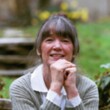Imperfect Birds
(Libby/OverDrive eBook, Kindle)
Available Platforms
Description
Similar Titles From NoveList
Similar Authors From NoveList
Published Reviews
Booklist Review
It is sobering to think that Rosie Ferguson is your typical teenage girl. On one hand, she's in the throes of her senior year in high school: concerned with body image and boyfriends, BFFs and boredom, and, of course, the daily trauma of living with parents who are so hopelessly, well, hopeless. On the other hand, she is an adept addict who's never met a substance she wouldn't abuse or a male she wouldn't seduce. Juggling these two worlds demands bigger and more frequent scores, and more facile lies, while Rosie's parents, recovering alcoholic Elizabeth and workaholic stepfather James, are reluctant to enforce even the lamest disciplinary rules for fear of losing Rosie's love until one night when her world comes crashing down, and Elizabeth and James have no choice but to send Rosie to a wilderness rehab program. Reprising characters from her previous novels, Rosie (1997) and Crooked Little Heart (1998), Lamott intuitively taps into the teenage drug culture to create a vivid, unsettling portrait of a family in crisis. As she eschews the cunning one-liners and wry observations that had become her signature stock-in-trade, Lamott produces her most stylistically mature and thematically circumspect novel to date.--Haggas, Carol Copyright 2010 Booklist
Publisher's Weekly Review
Rosie Ferguson, the young heroine of Lamott's Rosie and Crooked Little Heart, almost succumbs to the drug culture in this unsparing look at teenagers and parents who walk the tightrope between all-encompassing love and impotent fury. The former tennis star is now a straight-A high school senior, living with her mother, Elizabeth, and stepfather, James, in Marin County. Elizabeth, still susceptible to emotional breakdowns and fighting lapses into alcoholism, is acutely aware of Rosie's vulnerability, and she and James are vigilant in watching Rosie's behavior, knowing, as everyone does, that drug deals go down in the town's central square, and that the kids are drinking, sexually active, and aligned against their parents. Lamott captures this gestalt with her distinctive mixture of warmth, humor, and sensitivity to volatile emotional equilibrium, going laser-sharp into teen mindsets: the craving for secrecy and excitement, the thrill of flaunting the law and parental rules. Eventually forced to confront Rosie's peril and its potentially marriage-destroying power, Elizabeth and James take decisive action and risk their family. Straddling a line between heartwarming and heartbreaking, this novel is Lamott at her most witty, observant, and psychologically astute. (Apr.) (c) Copyright PWxyz, LLC. All rights reserved
Library Journal Review
Lamott returns to some of her favorite characters in this exploration of raising a teenager in today's difficult world. In Rosie, Rosie was a child dealing with her mother's alcoholism. In Crooked Little Heart, she was a 13-year-old tennis champion beginning to understand boys, self-doubt, and the continued stress with her mother. In this novel, Rosie is now 17, and while she holds it together in school, her hidden life is all about drugs and alcohol. Since Rosie masks it so well, her mother, Elizabeth, now a recovered alcoholic, tries to give her room to experiment. But once the bottom falls out, Elizabeth realizes the consequences of her misplaced trust. Lamott covers faith and its part in life and personal struggles-a topic that's close to her heart and nicely portrayed through Elizabeth's best friend, the spiritual Rae. Verdict This is a deft, moving look at an extremely fragile and codependent mother-daughter relationship and how an out-of-control teenager affects a life, a friendship, and a marriage. Lamott is consistently wonderful with this type of novel, and once again she does not disappoint. [See Prepub Alert, LJ 12/09.]-Beth Gibbs, Davidson, NC (c) Copyright 2010. Library Journals LLC, a wholly owned subsidiary of Media Source, Inc. No redistribution permitted.
Kirkus Book Review
Lamott, best known for nonfiction, including popular books on writing (Bird by Bird, 1994) and spirituality (Traveling Mercies, 1999), returns to the novel with a sequel of sorts to one of her earliest and best, Rosie (1983). A child in that novel with an alcoholic mother, Rosie is now 17 and her mother, Elizabeth, is generally sober through Alcoholics Anonymous, though not without the occasional relapse. More beautiful than she knows, desperate to fit in and find love, Rosie insists to her mother, "I'm a good kid, Mom." But as a friend suggests, "Even the good kids break your heart." Rosie has yet to succumb to the addictions, pregnancies, suicide attempts and car crashes so common among the "good kids" in this California coastal community, but she has frequently been caught in lies and may even have trouble facing the truth about herself. She remains a source of tension between Elizabeth and James, Rosie's stepfather, who favors more of a tough-love approach than the unconditional love Elizabeth is more likely to bestow. Yet Rosie's deceptions threaten Elizabeth's sobriety, while the weakness of Rosie's mother and the death of her father have left Rosie with an emptiness to fill. Lamott alternates between the perspectives of Elizabeth and Rosie, and both ring true. As Elizabeth realizes, "Rosie had a secret life now, was putting together her own tribe, finding her identity there, and it was great to see, and it hurt like hell." If only the novel had been able to avoid proclamations such as, "Your whole selfish generation has helped kill this planet!" and facile reflections such as, "it's good to notice that my life is pretty great, even if my mind isn't." We're all imperfect birds, in a novel that sounds a warning note to parents of "good kids," even though some might resist its climactic remedy. In the end, the strengths of central characters and believable complications overcome a tendency toward oracular psychobabble. Copyright Kirkus Reviews, used with permission.
Booklist Reviews
It is sobering to think that Rosie Ferguson is your typical teenage girl. On one hand, she's in the throes of her senior year in high school: concerned with body image and boyfriends, BFFs and boredom, and, of course, the daily trauma of living with parents who are so hopelessly, well, hopeless. On the other hand, she is an adept addict who's never met a substance she wouldn't abuse or a male she wouldn't seduce. Juggling these two worlds demands bigger and more frequent scores, and more facile lies, while Rosie's parents, recovering alcoholic Elizabeth and workaholic stepfather James, are reluctant to enforce even the lamest disciplinary rules for fear of losing Rosie's love—until one night when her world comes crashing down, and Elizabeth and James have no choice but to send Rosie to a wilderness rehab program. Reprising characters from her previous novels, Rosie (1997) and Crooked Little Heart (1998), Lamott intuitively taps into the teenage drug culture to create a vivid, unsettling portrait of a family in crisis. As she eschews the cunning one-liners and wry observations that had become her signature stock-in-trade, Lamott produces her most stylistically mature and thematically circumspect novel to date. Copyright 2010 Booklist Reviews.
Library Journal Reviews
Lamott returns to some of her favorite characters in this exploration of raising a teenager in today's difficult world. In Rosie, Rosie was a child dealing with her mother's alcoholism. In Crooked Little Heart, she was a 13-year-old tennis champion beginning to understand boys, self-doubt, and the continued stress with her mother. In this novel, Rosie is now 17, and while she holds it together in school, her hidden life is all about drugs and alcohol. Since Rosie masks it so well, her mother, Elizabeth, now a recovered alcoholic, tries to give her room to experiment. But once the bottom falls out, Elizabeth realizes the consequences of her misplaced trust. Lamott covers faith and its part in life and personal struggles—a topic that's close to her heart and nicely portrayed through Elizabeth's best friend, the spiritual Rae. VERDICT This is a deft, moving look at an extremely fragile and codependent mother-daughter relationship and how an out-of-control teenager affects a life, a friendship, and a marriage. Lamott is consistently wonderful with this type of novel, and once again she does not disappoint. [See Prepub Alert, LJ 12/09.]—Beth Gibbs, Davidson, NC
[Page 90]. Copyright 2010 Reed Business Information.Library Journal Reviews
Smart, beautiful, and a star athlete, 17-year-old Rosie is also in danger of drifting into the darkness of drugs and alcohol. Lamott should do this well. Copyright 2009 Reed Business Information.
Publishers Weekly Reviews
Rosie Ferguson, the young heroine of Lamott's Rosie and Crooked Little Heart, almost succumbs to the drug culture in this unsparing look at teenagers and parents who walk the tightrope between all-encompassing love and impotent fury. The former tennis star is now a straight-A high school senior, living with her mother, Elizabeth, and stepfather, James, in Marin County. Elizabeth, still susceptible to emotional breakdowns and fighting lapses into alcoholism, is acutely aware of Rosie's vulnerability, and she and James are vigilant in watching Rosie's behavior, knowing, as everyone does, that drug deals go down in the town's central square, and that the kids are drinking, sexually active, and aligned against their parents. Lamott captures this gestalt with her distinctive mixture of warmth, humor, and sensitivity to volatile emotional equilibrium, going laser-sharp into teen mindsets: the craving for secrecy and excitement, the thrill of flaunting the law and parental rules. Eventually forced to confront Rosie's peril and its potentially marriage-destroying power, Elizabeth and James take decisive action and risk their family. Straddling a line between heartwarming and heartbreaking, this novel is Lamott at her most witty, observant, and psychologically astute. (Apr.)
[Page 90]. Copyright 2010 Reed Business Information.Reviews from GoodReads
Citations
Lamott, A. (2010). Imperfect Birds . Penguin Publishing Group.
Chicago / Turabian - Author Date Citation, 17th Edition (style guide)Lamott, Anne. 2010. Imperfect Birds. Penguin Publishing Group.
Chicago / Turabian - Humanities (Notes and Bibliography) Citation, 17th Edition (style guide)Lamott, Anne. Imperfect Birds Penguin Publishing Group, 2010.
Harvard Citation (style guide)Lamott, A. (2010). Imperfect birds. Penguin Publishing Group.
MLA Citation, 9th Edition (style guide)Lamott, Anne. Imperfect Birds Penguin Publishing Group, 2010.
Copy Details
| Collection | Owned | Available | Number of Holds |
|---|---|---|---|
| Libby | 1 | 1 | 0 |































